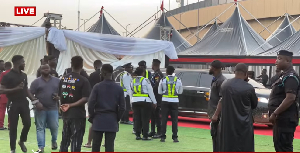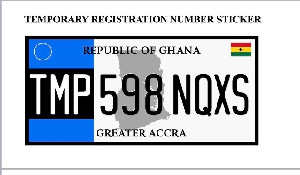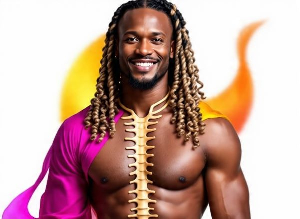Authorities in South Africa’s KwaZulu-Natal province on Monday began a three-day probe into the allegations of cultism, human rights violations, sexual and religious abuse at Kwasizabantu Mission (KSB), one of Africa’s largest missions with thousands of worshippers.
The inquiry was launched by the Commission for the Promotion and Protection of the Rights of Cultural, Religious and Linguistic Communities (CRL) in Durban after News24 released an exposé of stories of alleged victims of abuse as well as money laundering claims by the 50-year-old mission located in northern KwaZulu-Natal.
Founded in 1970 by South African evangelical and revivalist preacher Erlo Stegen, KwaSizabantu “is a non-denominational Christian mission station that reaches out to people of all racial and cultural groups bringing a message of repentance and hope and providing spiritual guidance, educational support and counselling,” its website says.
KSB originated in South Africa but later expanded to include centers in several countries including Germany and Switzerland, which would later part ways with it following claims that donor money was being embezzled. Currently, the mission has numerous non-profit initiatives and successful commercial enterprises which provide funds for its activities and educational facilities.
In South Africa, it is well-known for its aQuellé bottled water which it sells to some of the country’s biggest retailers including Pick n Pay, Makro and Shoprite. But with the recent allegations of human rights abuses and others, which it has denied, many of its business partners have halted work with the mission.
A witness during the hearing on Monday, 45-year-old Celimpilo Malinga, said she was raped and became pregnant. “My father didn’t have a chance to be our father because our father was the church,” Malinga testified.
“The church parented us, we never knew our parents’ voice because they took instruction from the church and we did not have a relationship where they could say, ‘this is what we want for our children’.
“The church wanted something for their children. The church didn’t build our family, the church broke our family.”
Another woman told the commission that she was raped 35 years ago but was told to keep mum about it when she reported the incident to her counselor at the church. She only told her husband recently when she got married. Last November, she and her husband opened a rape case but the counselor had left the mission.
“The reason we are here before the commission is because we want answers about what happened to the case,” the couple said.
“Confession was done all the time and we were made to believe that the more you confessed, the better you are. My counsellor had told me that now that I had brought my rape incident to him, God had forgiven me.
“We were made to believe that we were sinners. I left the mission and realised that this was not true,” she said.
In fact, many of the victims said they lived in fear and that the mission covered up much of what happened. What is more, News24 found out that the church’s links to politicians and powerful people in KwaZulu-Natal enabled it to avoid being scrutinized by law even when it was earlier accused of “virginity testing” young girls, not paying staff working on its farming projects and breaking families apart.
South African politician Mangosuthu Buthelezi of the Inkatha Freedom Party has close family ties to the mission. Former President Jacob Zuma’s mother also worshipped at the mission, which in the 1980s worked closely with the apartheid South African government to expose enemies of the apartheid state or “ANC terrorists who came to Kwasizabantu,” according to a former church member, Koos Greeff.
Leaders of Kwasizabantu, who have denied these accusations, are expected to present their defence to the commission on Wednesday.
“We want to probe and get to the bottom of these issues and find the truth,” said Commission chair Prof David Mosoma.
“We want to make sure that these matters that have touched the consciousness of the nation with regards to human rights abuse and religious beliefs [are investigated].”
Africa News of Tuesday, 6 October 2020
Source: face2faceafrica.com













